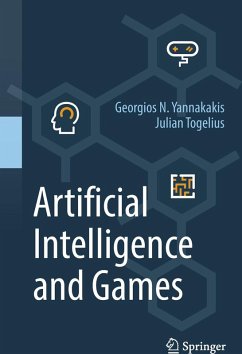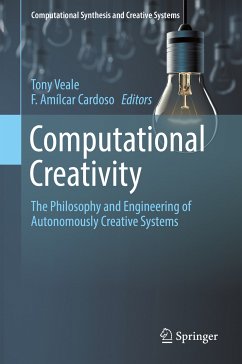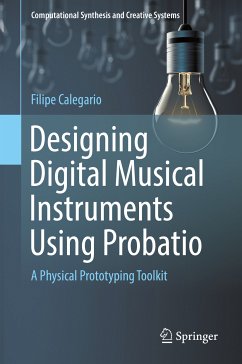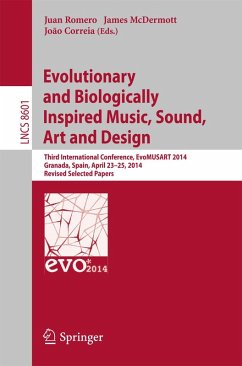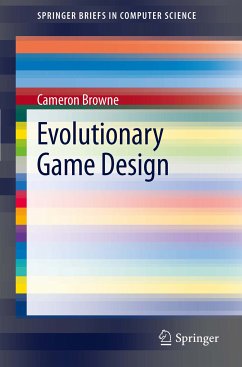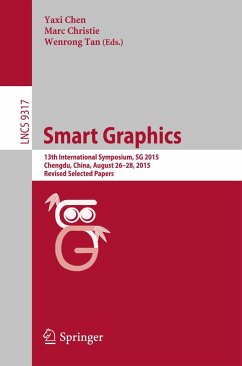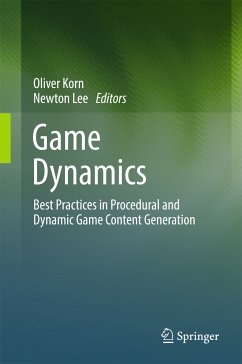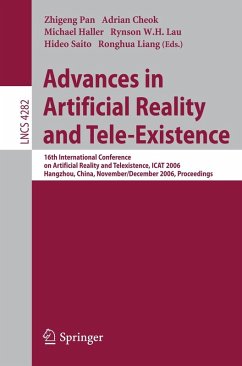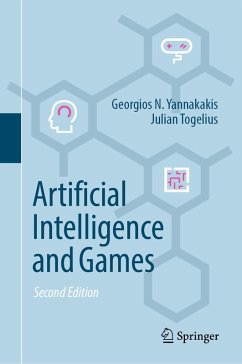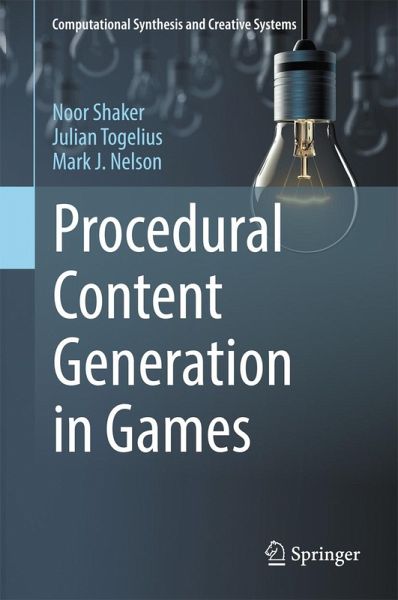
Procedural Content Generation in Games (eBook, PDF)
Versandkostenfrei!
Sofort per Download lieferbar
38,95 €
inkl. MwSt.
Weitere Ausgaben:

PAYBACK Punkte
19 °P sammeln!
This book presents the most up-to-date coverage of procedural content generation (PCG) for games, specifically the procedural generation of levels, landscapes, items, rules, quests, or other types of content. Each chapter explains an algorithm type or domain, including fractal methods, grammar-based methods, search-based and evolutionary methods, constraint-based methods, and narrative, terrain, and dungeon generation.The authors are active academic researchers and game developers, and the book is appropriate for undergraduate and graduate students of courses on games and creativity; game deve...
This book presents the most up-to-date coverage of procedural content generation (PCG) for games, specifically the procedural generation of levels, landscapes, items, rules, quests, or other types of content. Each chapter explains an algorithm type or domain, including fractal methods, grammar-based methods, search-based and evolutionary methods, constraint-based methods, and narrative, terrain, and dungeon generation.
The authors are active academic researchers and game developers, and the book is appropriate for undergraduate and graduate students of courses on games and creativity; game developers who want to learn new methods for content generation; and researchers in related areas of artificial intelligence and computational intelligence.
The authors are active academic researchers and game developers, and the book is appropriate for undergraduate and graduate students of courses on games and creativity; game developers who want to learn new methods for content generation; and researchers in related areas of artificial intelligence and computational intelligence.
Dieser Download kann aus rechtlichen Gründen nur mit Rechnungsadresse in A, B, BG, CY, CZ, D, DK, EW, E, FIN, F, GR, HR, H, IRL, I, LT, L, LR, M, NL, PL, P, R, S, SLO, SK ausgeliefert werden.



